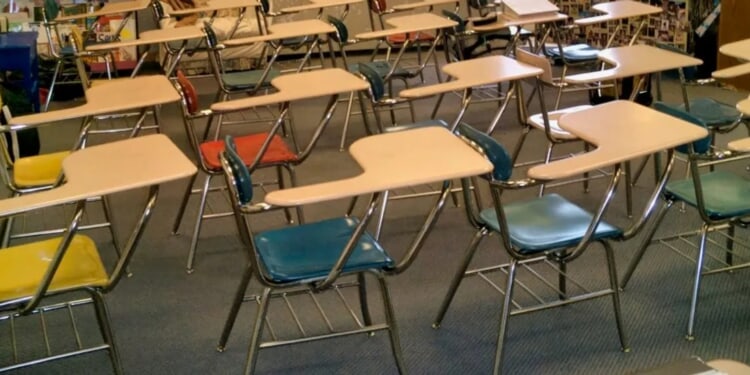The latest results from the National Assessment of Educational Progress should be a wake-up call for every parent, policymaker, and citizen who cares about the future of this country. The “Nation’s Report Card” revealed that the graduating class of 2024 posted historically low scores in math and reading, just months before leaving high school. These numbers represent a generation stepping into adulthood less prepared than those who came before them.
The decline is striking. Average math scores for 12th graders fell to their lowest levels since 2005, with nearly half of students performing below even the “Basic” benchmark. Reading followed a similar path, with average scores hitting new lows and only the highest-performing students avoiding decline.
It is tempting to blame the pandemic for all of this. After all, these students began high school as COVID-19 shut down schools nationwide. Isolation, screens, and uneven remote instruction replaced their freshman year, when adolescents needed structure and a sense of belonging. Disruption played a role. (RELATED: High School Seniors Are Struggling To Read — It’s Time To Overhaul Our Education System)
But the truth is, the cracks in our education system predate the pandemic. The gap between high- and low-performing students was already widening before 2020, and the latest NAEP results show just how much worse it has gotten. The pandemic didn’t create the problem–it exposed and accelerated it.
These results show grave threats to the future of the U.S. workforce. Despite poor reading and math results, more than half of the seniors tested said a four-year college had accepted them. Acceptance is up, but readiness is down. It’s a disconnect that sets many young people up for failure and places an even heavier burden on colleges, which must now serve as remedial institutions instead of engines of higher learning.
At its core, this is about a system that has lost its mission. Federal involvement in education has expanded over decades, yet outcomes have stagnated or declined. Education Secretary Linda McMahon put it plainly: national oversight has not delivered results, and states may need to reclaim more control to innovate and respond to local needs.
A one-size-fits-all approach has not lifted student achievement. Worse still, how schools approach teaching often fails to inspire discipline or rigor within individual students. Fewer students are enrolling in advanced courses like pre-calculus, absenteeism is rising, and surveys show that students feel less confident in their math skills. These signs of disengagement point to more profound failings than test scores alone can capture.
The stakes could not be higher. A society that graduates students who cannot read proficiently or solve fundamental math problems is declining. Employers already speak of a skills gap and a shortage of workers capable of critical thinking, problem-solving, and adaptability. Meanwhile, technology and global competition are moving forward at a pace that demands more from our citizens, not less. The future of the American workforce, and even our Republic’s vitality, depends on citizens who can think clearly and engage responsibly with each other and their communities. We’re falling short of that standard.
What, then, is to be done? The answer cannot be another round of finger-pointing or short-term fixes. Real change will require courage and clarity. We must double down on the basics, ensuring that children build strong foundations in reading and math by the time they leave elementary school. We must restore rigor to our classrooms, refusing to water down expectations in the name of equity, because accurate “equity” requires giving all students access to challenging and meaningful coursework. We must address absenteeism urgently, recognizing that showing up is half the battle for learning. We must empower teachers to focus on the classroom instead of burying them with tasks unrelated to their profession so that they can do the hard work of instructing students.
The NAEP results are sobering, but they should leave us with the desire to act quickly and decisively. Educational progress isn’t impossible to achieve. While the decline in 12th-grade achievement is a stark warning for the future, there’s still time to correct the course, starting with the local school districts.
Aiden Buzzetti is the President of the 1776 Project Foundation. He was formerly the Head of Coalitions and Candidate Recruitment for the 1776 Project PAC. Aiden is a native of Marietta, Ga. and a student of public schools. He graduated from American University with a degree in political science.
The views and opinions expressed in this commentary are those of the author and do not reflect the official position of the Daily Caller News Foundation.
All content created by the Daily Caller News Foundation, an independent and nonpartisan newswire service, is available without charge to any legitimate news publisher that can provide a large audience. All republished articles must include our logo, our reporter’s byline and their DCNF affiliation. For any questions about our guidelines or partnering with us, please contact licensing@dailycallernewsfoundation.org.











![Keith Ellison Caught Promising to Fight State Agencies for Somali Fraudsters [WATCH]](https://www.right2024.com/wp-content/uploads/2026/01/Keith-Ellison-Caught-Promising-to-Fight-State-Agencies-for-Somali-350x250.jpg)





